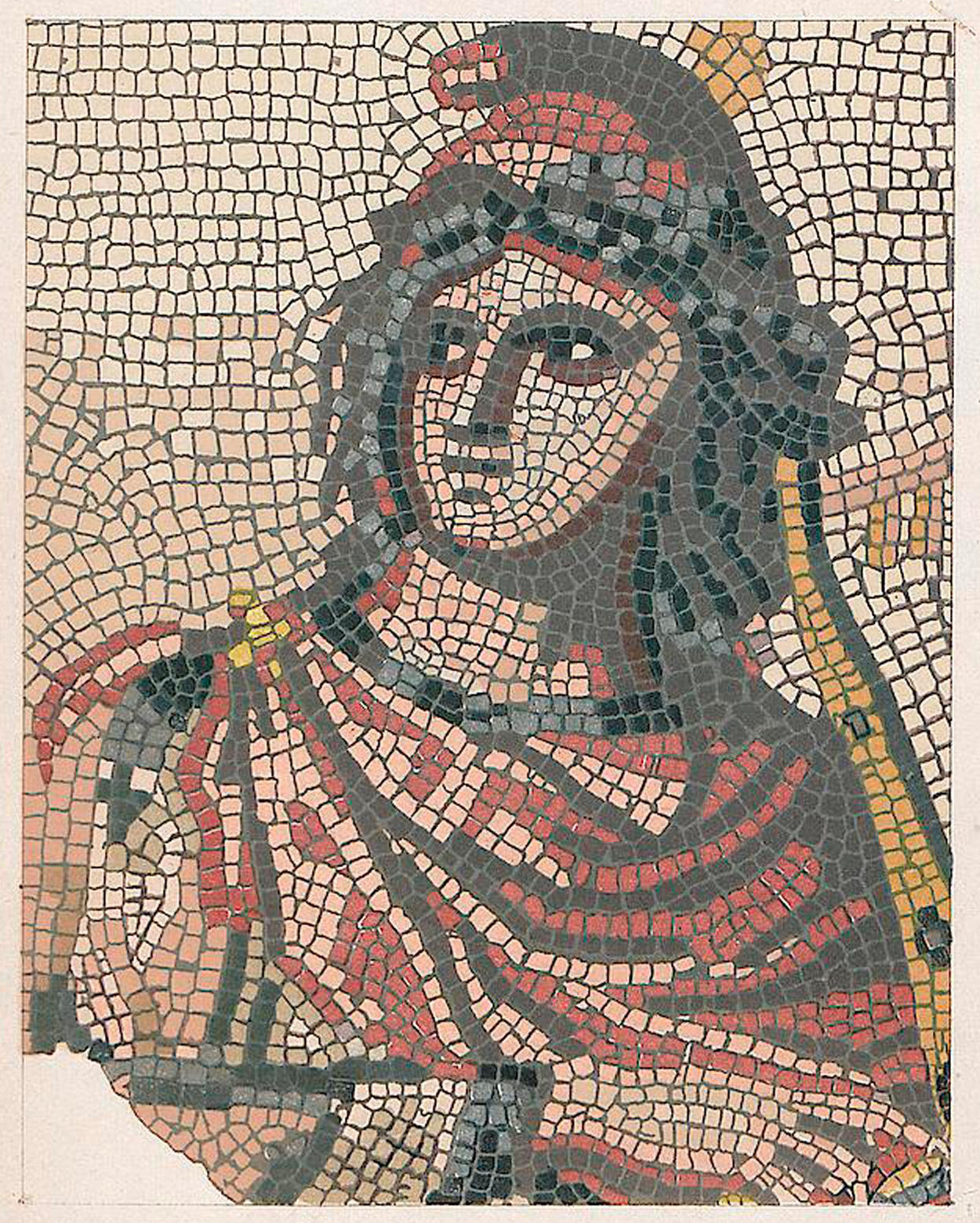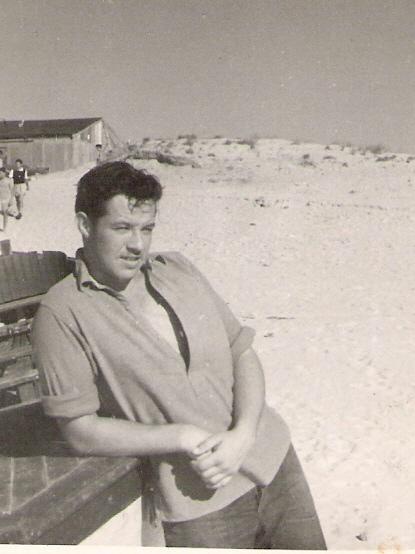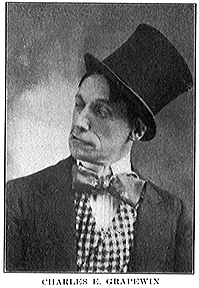|
Nathan Alterman
Nathan Alterman (; August 14, 1910 – March 28, 1970) was an Israeli poet, playwright, journalist, and translator. Though never holding any elected office, Alterman was highly influential in Labor Zionist politics, both before and after the establishment of the modern State of Israel in 1948. Biography Nathan Alterman was born in Warsaw, Poland (then part of the Russian Empire). In 1925, when he was 15 years old, the family moved to Tel Aviv and he continued his studies at the Herzliya Hebrew High School. When he was 19 years old, he travelled to Paris to study at the University of Paris (a.k.a. La Sorbonne), but a year later he decided to go to Nancy to study agronomy. Though maintaining close contacts with his family and friends in Tel Aviv and visiting them on vacations, Alterman spent three years in France and was highly influenced by his occasional meetings with French artists and writers. On his return to Tel Aviv in 1932, he started working at the Mikveh Yisrael agri ... [...More Info...] [...Related Items...] OR: [Wikipedia] [Google] [Baidu] |
Warsaw
Warsaw, officially the Capital City of Warsaw, is the capital and List of cities and towns in Poland, largest city of Poland. The metropolis stands on the Vistula, River Vistula in east-central Poland. Its population is officially estimated at 1.86 million residents within a Warsaw metropolitan area, greater metropolitan area of 3.27 million residents, which makes Warsaw the List of cities in the European Union by population within city limits, 6th most-populous city in the European Union. The city area measures and comprises List of districts and neighbourhoods of Warsaw, 18 districts, while the metropolitan area covers . Warsaw is classified as an Globalization and World Cities Research Network#Alpha 2, alpha global city, a major political, economic and cultural hub, and the country's seat of government. It is also the capital of the Masovian Voivodeship. Warsaw traces its origins to a small fishing town in Masovia. The city rose to prominence in the late 16th cent ... [...More Info...] [...Related Items...] OR: [Wikipedia] [Google] [Baidu] |
Agronomy
Agronomy is the science and technology of producing and using plants by agriculture for food, fuel, fiber, chemicals, recreation, or land conservation. Agronomy has come to include research of plant genetics, plant physiology, meteorology, and soil science. It is the application of a combination of sciences such as biology, chemistry, economics, ecology, earth science, and genetics. Professionals of agronomy are termed agronomists. Plant breeding This topic of agronomy involves selective breeding of plants to produce the best crops for various conditions. Plant breeding has increased crop yields and has improved the nutritional value of numerous crops, including corn, soybeans, and wheat. It has also resulted in the development of new types of plants. For example, a hybrid grain named triticale was produced by crossbreeding rye and wheat. Triticale contains more usable protein than does either rye or wheat. Agronomy has also been instrumental for fruit and vegetable pr ... [...More Info...] [...Related Items...] OR: [Wikipedia] [Google] [Baidu] |
Holocaust
The Holocaust (), known in Hebrew language, Hebrew as the (), was the genocide of History of the Jews in Europe, European Jews during World War II. From 1941 to 1945, Nazi Germany and Collaboration with Nazi Germany and Fascist Italy, its collaborators systematically murdered some six million Jews across German-occupied Europe, around two-thirds of Europe's Jewish population. The murders were carried out primarily through mass shootings and poison gas in extermination camps, chiefly Auschwitz concentration camp#Auschwitz II-Birkenau, Auschwitz-Birkenau, Treblinka extermination camp, Treblinka, Belzec extermination camp, Belzec, Sobibor extermination camp, Sobibor, and Chełmno extermination camp, Chełmno in Occupation of Poland (1939–1945), occupied Poland. Separate Nazi persecutions killed a similar or larger number of non-Jewish civilians and prisoners of war (POWs); the term ''Holocaust'' is sometimes used to include the murder and persecution of Victims of Nazi ... [...More Info...] [...Related Items...] OR: [Wikipedia] [Google] [Baidu] |
Eurydice
Eurydice (; Ancient Greek: Εὐρυδίκη 'wide justice', classical pronunciation: ) was a character in Greek mythology and the wife of Orpheus, whom Orpheus tried to bring back from the dead with his enchanting music. Etymology Several meanings for the name ''Eurydice'' have been proposed such as "true judgment" or "profound judgment" from the Greek language, Greek: ''eur dike''. Fabius Planciades Fulgentius, Fulgentius, a mythographer of the late 5th to early 6th century AD, gave the latter etymological meaning. Adriana Cavarero, in the book ''Relating Narratives: Storytelling and Selfhood'', wrote that "the etymology of Eurydice seems rather to indicate, in the term ''eurus'', a vastness of space or power, which, joining to ''dike'' [and thus ''deiknumi'', to show], designates her as 'the one who judges with breadth' or, perhaps, 'she who shows herself amply.'" Mythology Marriage to Orpheus, death and afterlife Eurydice was the wife of musician Orpheus, who loved ... [...More Info...] [...Related Items...] OR: [Wikipedia] [Google] [Baidu] |
Orpheus
In Greek mythology, Orpheus (; , classical pronunciation: ) was a Thracians, Thracian bard, legendary musician and prophet. He was also a renowned Ancient Greek poetry, poet and, according to legend, travelled with Jason and the Argonauts in search of the Golden Fleece, and descended into the Greek underworld, underworld to recover his lost wife, Eurydice. The major stories about him are centered on his ability to charm all living things and even stones with his music (the usual scene in Orpheus mosaics), his attempt to retrieve his wife Eurydice from the underworld, and his death at the hands of the maenads of Dionysus, who got tired of his mourning for his late wife Eurydice. As an archetype of the inspired singer, Orpheus is one of the most significant figures in the classical reception studies, reception of classical mythology in Western culture, portrayed or allusion, alluded to in countless forms of art and popular culture including poetry, film, opera, music, and painting ... [...More Info...] [...Related Items...] OR: [Wikipedia] [Google] [Baidu] |
Hebrew Literature
Hebrew literature consists of ancient, medieval, and modern writings in the Hebrew language. It is one of the primary forms of Jewish literature, though there have been cases of literature written in Hebrew by non-Jews, mostly among the Arab citizens of Israel. Hebrew literature was produced in many different parts of the world throughout the medieval and modern eras, while contemporary Hebrew literature is largely Israeli literature. In 1966, Agnon won the Nobel Prize for Literature for novels and short stories that employ a unique blend of biblical, Talmudic and modern Hebrew, making him the first Hebrew writer to receive this award. There have been many bibliographies recording Hebrew books and authors, one of the most comprehensive being ''The Bibliography of the Hebrew Book 1473-1960'', a bibliography of all printed Hebrew books published before 1960 which lists some 12,000 authors and 9000 titles. Ancient era Literature in Hebrew begins with the oral literature of the ... [...More Info...] [...Related Items...] OR: [Wikipedia] [Google] [Baidu] |
Benjamin Harshav
Benjamin Harshav (), born Hrushovski (Hebrew: הרושובסקי); June 26, 1928 – April 23, 2015 was a literary theorist specialising in comparative literature, a Yiddish and Hebrew poet (under pen names including H. Benjamin (Hebrew: ה. בנימין) and Gabi Daniel (Hebrew: גבי דניאל)), and an Israeli translator and editor. He served as professor of literature at the University of Tel Aviv and as a professor of comparative literature, Hebrew language and literature, and Slavic languages and literature at Yale University. He was the founding editor of the Duke University Press publication '' Poetics Today''. He received the EMET Prize for Art, Science and Culture in 2005 and was a member of the American Academy of Arts and Sciences. Early life Benjamin Harshav was born as Benjamin Hrushovski (Hruszowski) in 1928, in Vilnius, capital of today's Lithuania (then Polish city ''Vilno''.) His parents were both educators: Dr Abraham Hrushovski ( Hebrew surname Agasi, He ... [...More Info...] [...Related Items...] OR: [Wikipedia] [Google] [Baidu] |
Neo-romanticism
The term neo-romanticism is used to cover a variety of movements in philosophy, literature, music, painting, and architecture, as well as social movements, that exist after and incorporate elements from the era of Romanticism. It has been used with reference to late-19th-century composers such as Richard Wagner particularly by Carl Dahlhaus who describes his music as "a late flowering of romanticism in a positivist age". He regards it as synonymous with "the age of Wagner", from about 1850 until 1890—the start of the era of modernism, whose leading early representatives were Richard Strauss and Gustav Mahler . It has been applied to writers, painters, and composers who rejected, abandoned, or opposed realism, naturalism, or avant-garde modernism at various points in time from about 1840 down to the present. Late 19th century and early 20th century Neo-romanticism as well as Romanticism is considered in opposition to naturalism—indeed, so far as music is concerned, natur ... [...More Info...] [...Related Items...] OR: [Wikipedia] [Google] [Baidu] |
Davar
''Davar'' (, lit. ''Speech, Word'') was a Hebrew-language daily newspaper published in the British Mandate of Palestine and Israel between 1925 and May 1996. A similarly named website was launched in 2016, under the name ''Davar Rishon'' as an online outlet by the Histadrut. History Newspaper (1925–1996) ''Davar'' was established by Moshe Beilinson and Berl Katznelson, with Katznelson as its first editor, as the newspaper of the Histadrut. The first edition was published on 1 June 1925 under the name ''Davar – Iton Poalei Eretz Yisrael (lit. ''Davar – Newspaper of Eretz Yisrael Workers''). The paper was successful, and published several supplements, including ''Davar HaPoelet'' ('' emaleWorker's Davar'', a women's paper), ''HaMeshek HaShitufi'' (''Co-operative Economy''), ''Davar HaShvua'' (''Davar This Week'') and ''Davar LeYeldim'' (''Davar for Children''), as well as the union newsletter ''Va'adken'' (''Update''). By 1950 it had around 400 employees and had an e ... [...More Info...] [...Related Items...] OR: [Wikipedia] [Google] [Baidu] |
Vaudeville
Vaudeville (; ) is a theatrical genre of variety entertainment which began in France in the middle of the 19th century. A ''vaudeville'' was originally a comedy without psychological or moral intentions, based on a comical situation: a dramatic composition or light poetry, interspersed with songs and dances. Vaudeville became popular in the United States and Canada from the early 1880s until the early 1930s, while changing over time. In some ways analogous to music hall from Victorian Britain, a typical North American vaudeville performance was made up of a series of separate, unrelated acts grouped together on a common bill. Types of acts have included popular and classical musicians, singers, dancers, comedians, trained animals, magicians, ventriloquists, strongmen, female and male impersonators, acrobats, clowns, illustrated songs, jugglers, one-act plays or scenes from plays, athletes, lecturing celebrities, minstrels, and films. A vaudeville performer ... [...More Info...] [...Related Items...] OR: [Wikipedia] [Google] [Baidu] |
Haaretz
''Haaretz'' (; originally ''Ḥadshot Haaretz'' – , , ) is an List of newspapers in Israel, Israeli newspaper. It was founded in 1918, making it the longest running newspaper currently in print in Israel. The paper is published in Hebrew language, Hebrew and English language, English in the Berliner (format), Berliner format, and is also available online. In North America, it is published as a weekly newspaper, combining articles from the Friday edition with a roundup from the rest of the week. ''Haaretz'' is Israel's newspaper of record. It is known for its Left-wing politics, left-wing and Liberalism in Israel, liberal stances on domestic and foreign issues. ''Haaretz'' has the third-largest Print circulation, circulation in Israel. It is widely read by international observers, especially in its English edition, and discussed in the international press. According to the Center for Research Libraries, among Israel's daily newspapers, "''Haaretz'' is considered the most infl ... [...More Info...] [...Related Items...] OR: [Wikipedia] [Google] [Baidu] |
Tomato
The tomato (, ), ''Solanum lycopersicum'', is a plant whose fruit is an edible Berry (botany), berry that is eaten as a vegetable. The tomato is a member of the nightshade family that includes tobacco, potato, and chili peppers. It originated from and was domesticated in western South America. It was introduced to the Old World by the Spanish in the Columbian exchange in the 16th century. Tomato plants are vines, largely Annual plant, annual and vulnerable to frost, though sometimes living longer in greenhouses. The flowers are able to self-fertilise. Modern varieties have been bred to ripen uniformly red, in a process that has impaired the fruit's sweetness and flavor. There are thousands of cultivars, varying in size, color, shape, and flavor. Tomatoes are attacked by many insect pests and nematodes, and are subject to diseases caused by viruses and by mildew and blight fungi. The tomato has a strong savoury umami flavor, and is an important ingredient in cuisines around ... [...More Info...] [...Related Items...] OR: [Wikipedia] [Google] [Baidu] |






